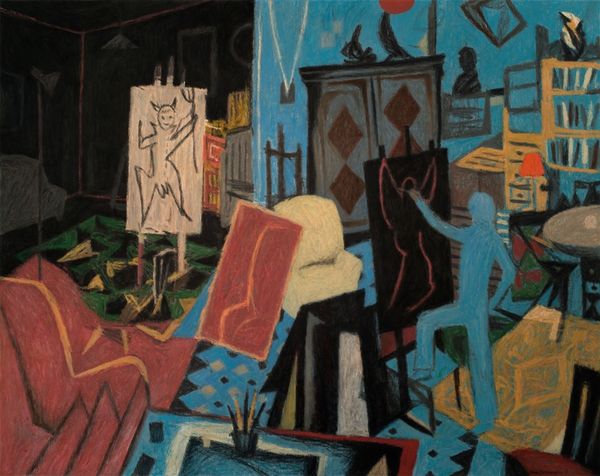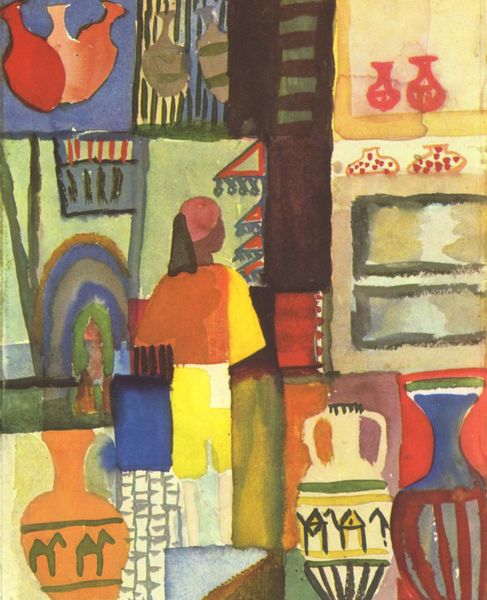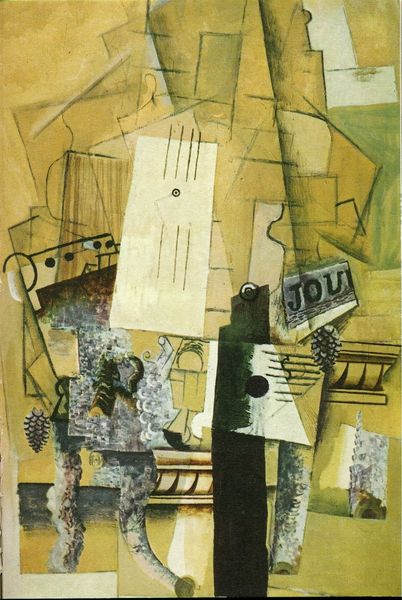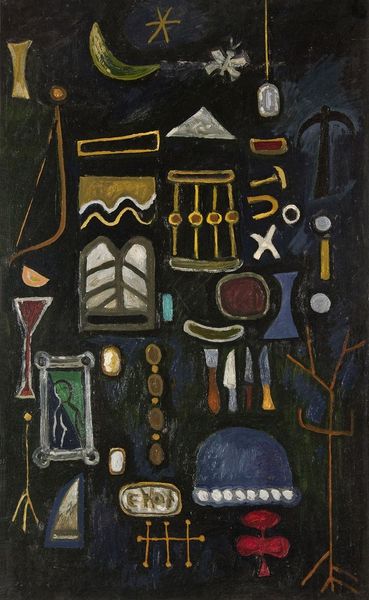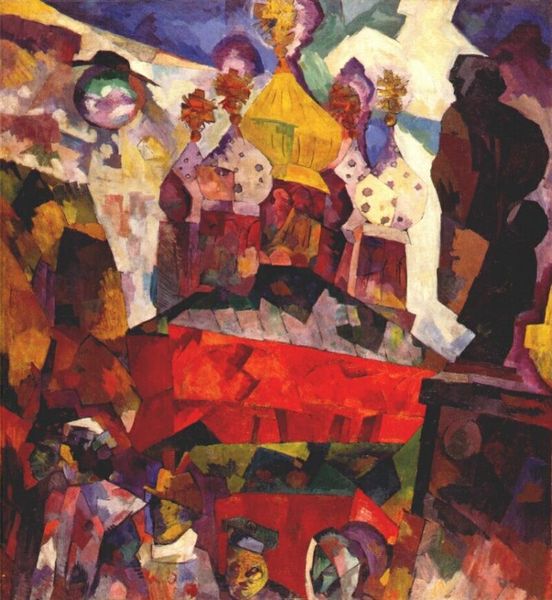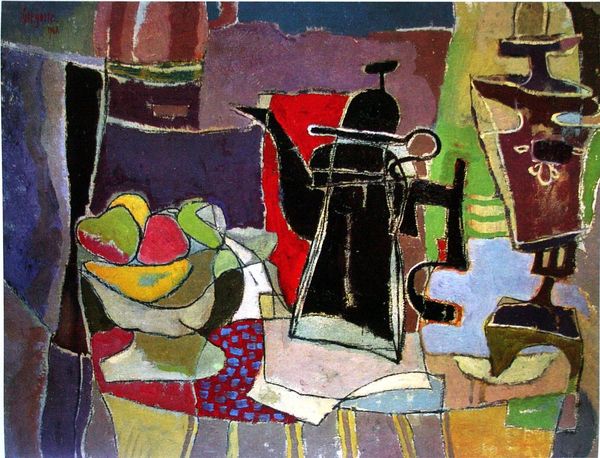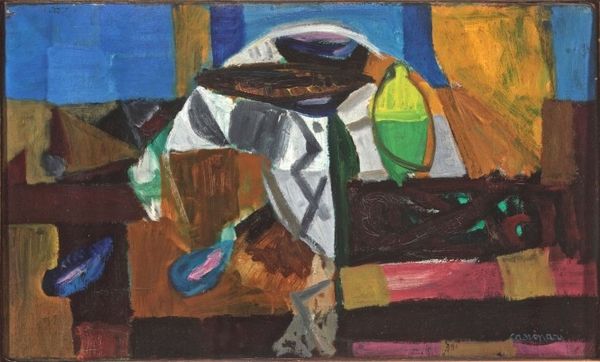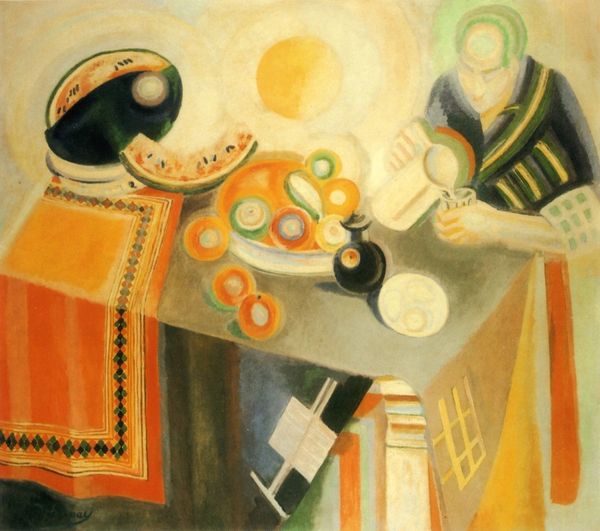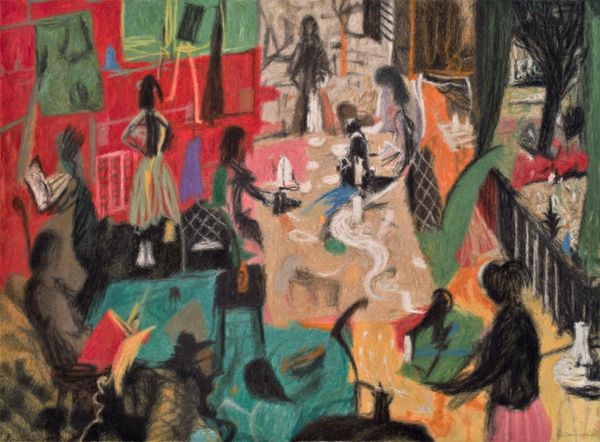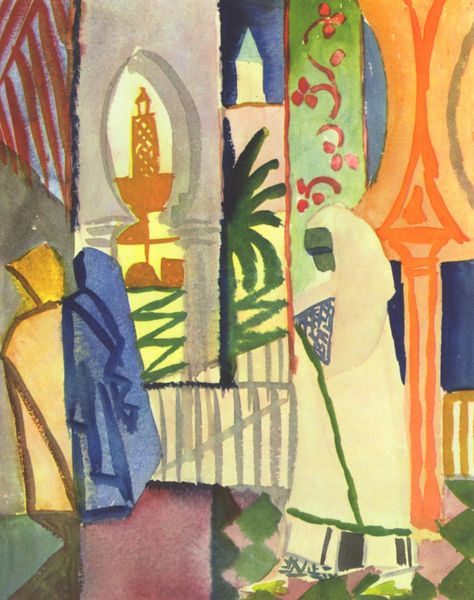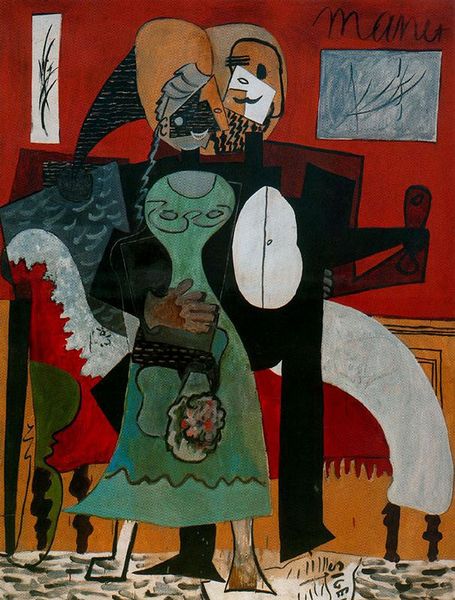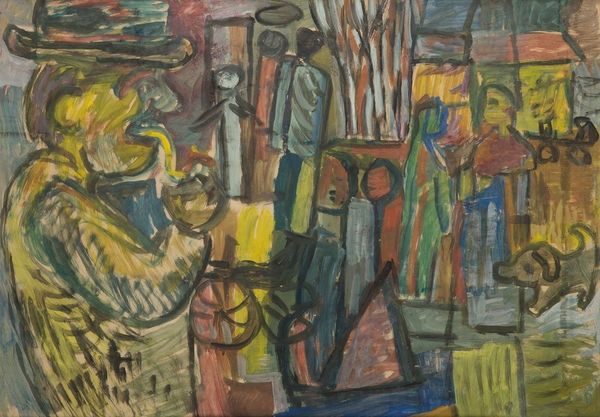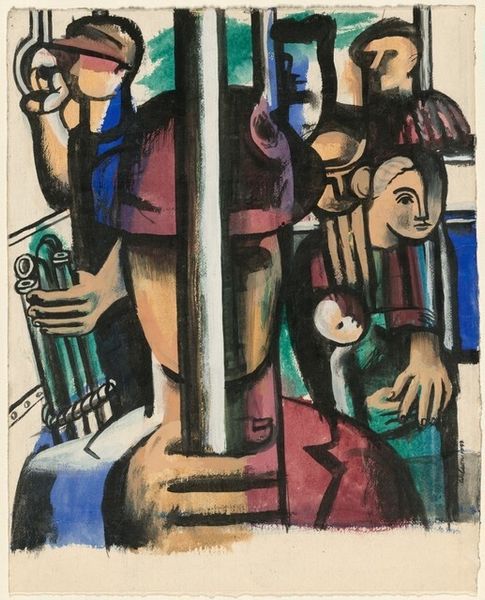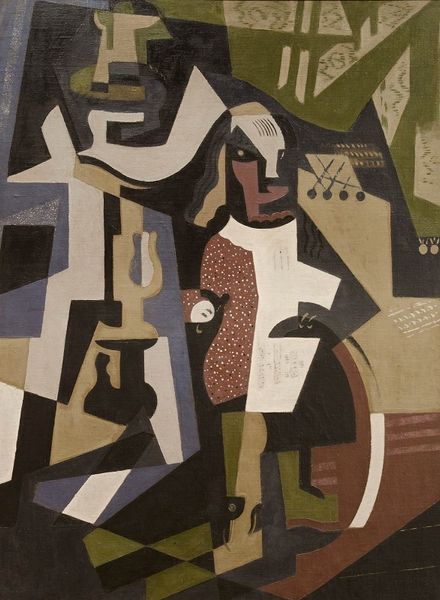
oil-paint
#
portrait
#
cubism
#
abstract painting
#
oil-paint
#
handmade artwork painting
#
oil painting
#
naive art
#
abstraction
#
portrait art
#
modernism
Dimensions: overall: 92.08 × 76.2 cm (36 1/4 × 30 in.) framed: 110.17 × 94.93 × 5.08 cm (43 3/8 × 37 3/8 × 2 in.)
Copyright: National Gallery of Art: CC0 1.0
Editor: Max Weber's "The Visit," an oil painting from 1917, really throws me for a loop. The figures are so stylized and geometric – it's almost like a puzzle! What strikes you when you look at it? Curator: It feels like a dreamscape, doesn’t it? Weber's playing with Cubist ideas here, breaking down forms, abstracting and reassembling them. See how he presents multiple perspectives simultaneously? That standing figure almost seems pulled from another dimension! I sense a longing for connection but also a profound sense of isolation. Does that resonate with you at all? Editor: Yeah, I see what you mean about the isolation. It's not a cozy, friendly visit, is it? All the angles feel a little sharp and unwelcoming. Do you think the abstraction relates to how visits felt at the time? Curator: Absolutely, context is key. Think of 1917, World War I raging, societal upheaval... Traditional portraiture, painting, felt inadequate, didn’t it? Weber sought to capture the psychological essence of interaction. It's not just who they *are*, but what transpires, those tensions. The visit isn’t only about two bodies in a room, but two colliding minds, you feel me? Editor: Totally. I didn’t even consider the war at first. Now I see how revolutionary the piece is, breaking from tradition. Curator: Indeed! Weber pushes us to look deeper, to engage with the emotional terrain, beyond just surface appearances. And it’s that terrain where we truly connect, even across a century. Editor: So, “The Visit” isn't just a portrait; it's a mirror reflecting the fractured psyche of the time. Curator: Exactly. And perhaps, in its fragmented beauty, it still speaks to our own age. It reminds us that encounters are rarely simple, and perception is everything.
Comments
No comments
Be the first to comment and join the conversation on the ultimate creative platform.
